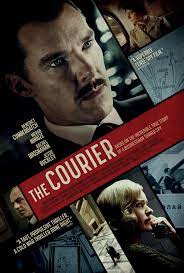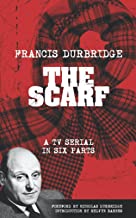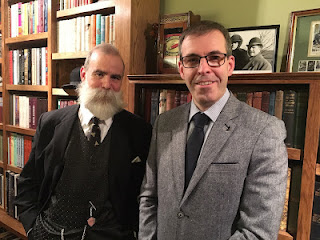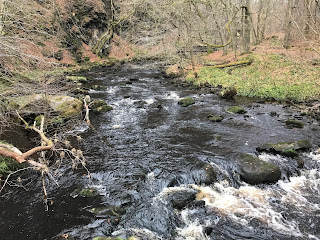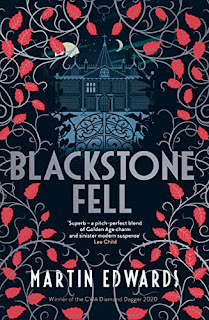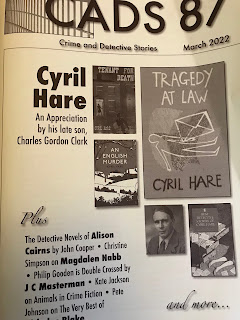The elegant UK paperback edition of The Crooked Shore has just been published by Allison & Busby and I had a chance to celebrate this pleasing milestone last night, by giving my first library talk since before the pandemic changed the world. The venue was Barnton Library, in Northwich, a few yards from the house of one of my great friends from schooldays, Andrew Golding, whose home I visited many times, and who sadly died far too young.
I've been delighted by reaction to The Crooked Shore from reviewers and readers alike. This is my first Lake District Cold Case Mystery for six years, and just as The Dungeon House was a bit of a departure within the series, so - even more so - is this novel. Last night I was discussing the craft of crime writing and explaining why I believe that, even within a series which has been running for years, it's desirable and rewarding to keep trying new things. It keeps me fresh as a writer and I hope that readers find it adds to the enjoyment.
The danger with any series is that, even if it begins brilliantly, it can become a bit stale and formulaic. Ever since Conan Doyle tried to kill of Sherlock Holmes at the Reichenbach Falls, there have been cases of writers becoming bored and frustrated with series characters. I'm glad to say that has never happened to me and I guess part of the reason is that I write quite a varied mix of things, as well as trying to ring the changes while working on existing projects.
Because of a million other projects, I haven't got round to updating the reviews page on my website as regards The Crooked Shore, but here is some of that reaction I mentioned:
‘Detective Chief
Inspector Hannah Scarlett's latest cold case involves the disappearance of a
waitress from Bowness more than 20 years ago. The man charged with her murder
was found not guilty but committed suicide thereafter. Now, on the anniversary
of his death, his son has gone and done the same thing: walked out into
Morecambe Bay and drowned himself. Meanwhile, the real killer is planning more
midsummer mischief. This is the eighth of Martin Edwards's Lake District novels.
As always a satisfying mystery is played out with lashings of local colour and
history. Favourite line: "Through the trees peeped the dome of the
eighteenth-century Round House, mocked by Wordsworth as a ‘tea canister in a
shop window’”.’
Mark Sanderson, The Times Crime Club
'A
splendidly imaginative plot will have you guessing and gasping until the very
end.’
Mat
Coward, Morning Star
‘Well-drawn characters…Readers old
and new will be well served by The
Crooked Shore, which delivers twists and turns against an evocative
backdrop of the Furness Peninsula…The Lakeland feel is heightened throughout
with fun, fictionalised locales…Martin is something of a crime writer’s crime
writer. Plaudits from Lee Child, Peter Robinson, and Ann Cleeves testify to the
esteem he’s held in by his peers. The
Crooked Shore is playful, creative, and solid storytelling from a writer in
tight control of his material.
Will Smith, Cumbria Life Book of the Month
‘One of Martin’s strengths is that
even when writing a series of books, he never seems content to write the same
book twice, and there is a central idea in The
Crooked Shore that I am not convinced that I’ve seen before. For a long
time reading the book, I wasn’t convinced of what direction the plot was moving
in…All in all, this is an engrossing read with some very clever ideas running
through it…an excellent novel, one of the very best in the series to date, and
easily one of the best police procedural (which is sort of is) that I’ve read
in a very long time.’
Steve Barge, In Search of the Classic Mystery
‘There is a splendidly labyrinthine
plot and a great cast of characters, many with secrets in their past….I raced
through this book and enjoyed it enormously. There were points where I thought
I knew where things were going, but I was wrong-footed at pretty much every
turn and the end came as a complete surprise. All this and a visit to the Lake
District. What more could you ask for? Except, of course, for the next
instalment.’
Christine Poulson, A Reading Life



